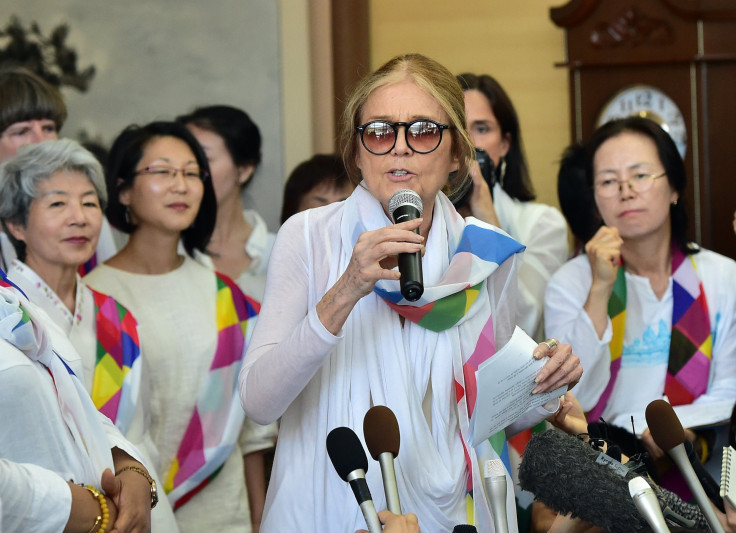Female Activists Cross DMZ Dividing Koreas On Controversial Peace March

An international group of women activists crossed the heavily fortified demilitarized zone (DMZ) that divides North and South Korea Sunday, in what they described as a bid to promote peace in the region, but what critics said was a propaganda coup for the North.
The group, known as WomenCrossDMZ, consisted of about 30 women, including noted feminist Gloria Steinem and two Nobel Peace laureates, Mairead Maguire of Northern Ireland and Leymah Gbowee of Liberia. The crossing was held to mark International Women's Day for Peace and Disarmament.
"We feel very celebratory and positive that we have created a voyage across the DMZ in peace and reconciliation that was said to be impossible," Steinem told CNN.
The group had originally wanted to cross the DMZ through the Panmunjom "truce village", where North and South Korean soldiers face each other, just meters apart. South Korea, however, opposed the plan, and the activists eventually made the crossing by bus, according to AFP.
Some have been critical of the activists' mission. In an op-ed featured in the Washington Post last month, Abraham Cooper of the Simon Wiesenthal Center and Greg Scarlatoiu of the Committee for Human Rights in North Korea, criticized the group for allowing North Korea to engage in "human rights theatre intended to cover up its death camps and crimes against humanity".
Other critics, cited by the BBC, took issue with the group for spending several days in the North Korean capital, Pyongyang, and for refusing to criticize the North's human rights record.
Steinem dismissed the charge, saying the women were “citizen diplomats" who had made human connections with North Korean women during their time there. She further described the trip as a "triumph" for peace and reconciliation.
Robert Kelly, a professor of political science and diplomacy at South Korea's Pusan National University, told Al Jazeera that "by crossing between the two states and making it look like both the North and the South are equally to blame, the march is letting Pyongyang off the hook.
"They are not morally the same, North Korea has a terrible record of human rights abuses. It allowed up to two million of its people to starve to death in the late 90s. To suggest the two are analogous, as the march is suggesting is an error," Kelly said.
© Copyright IBTimes 2025. All rights reserved.





















